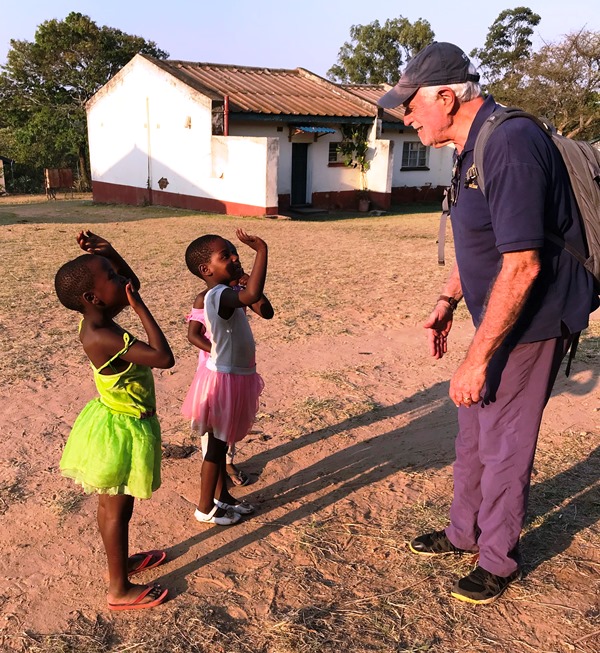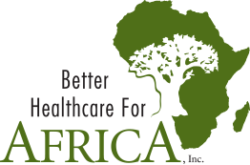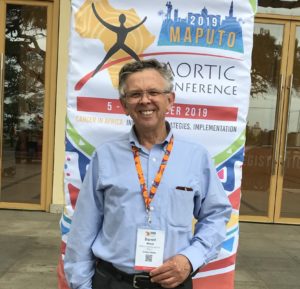2019 in Zimbabwe began with a national strike by doctors and nurses, with teachers and trade unionists threatening to follow suit. Medicines and basic medical supplies were largely unavailable. St. Albert’s and other mission hospitals were struggling. In their region of Zimbabwe, only the doctors at Karanda and St Albert’s had continued working, and they were inundated with patients.
St. Albert’s Hospital Director Dr. Julia Musariri wrote that the hospital’s greatest needs were “analgesia for post-operation women, suture material, injectible medicines, sterile and latex gloves and funds to pay the $2 500 and $3 600 cost of servicing two vehicles that we also use as ambulances. We have failed to raise the money needed to bring them back from the garages.” BHA was able to help Dr. Musariri meet a number of these needs. “The good news is that the rains seem good, and we hope they continue like this for a good season.”
Here are BHA’s major efforts to assist St. Albert’s Mission Hospital and reduce suffering during 2019.
Cervical Cancer Prevention
In the first six months of 2019,St. Albert’s cervical cancer prevention program screened a total of 1,295 women; 17 of these had possible precancerous changes and 16 had possible cancer. For the year 2019, Karanda Mission Hospital had screened 1,061 women; identified 37 women with precancerous changes and 42 women with possible cervical cancer. Both hospitals perform physical breast exams to identify possible breast cancers.
The St. Albert’s and Karanda cervical cancer screening programs have been supported by grants obtained by BHA board member Dr. Lowell Schnipper from the Sarita Kenedy East Foundation.
HPV study
Dr. Paul Thistle, Karanda hospital staff and Dr. Schnipper conducted a study to learn which types of cancer-causing HPV (i.e., high-risk HPV types) were present in women who came to Karanda for cervical cancer screening and tested VIAC positive. All the women gave their informed consent to participate in the study, which was approved by Zimbabwe’s Medical Research Council. BHA coordinated the purchase of reagents and materials required for the study.
Of the high-risk HPV types isolated from women, up to 45% were types that are not covered by the HPV vaccines currently used globally to protect women from cervical cancer.
“Our findings suggest the importance of characterizing the high-risk HPV types isolated from cervical neoplasia in northern Zimbabwe and determining whether cross-immunization against these genotypes develops after administration of the vaccines now in use,” Dr. Schnipper says.
A follow-up to this study in 2021 will look at the HPV types present in women coming to Karanda who have cervical cancer.
The researchers published their findings in the journal JCO Global Oncology, and Dr. Schnipper presented the findings at the AORTIC cancer conference (see below).
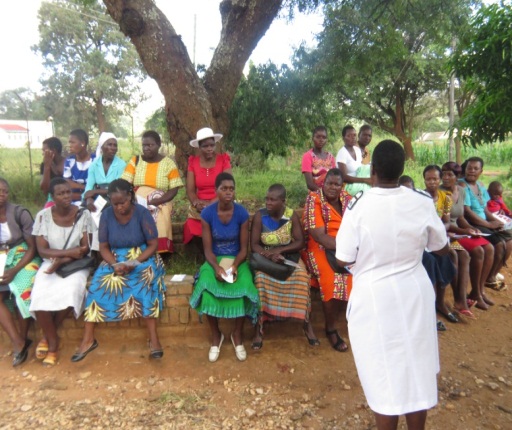
Meeting Critical Needs
Search for anesthesia machine leads to sending a shipping container
In March, the need for an anesthesia machine became acute for St. Albert’s. Our search for a replacement led Dr. Schnipper and BHA to work with the nonprofit Supplies Overseas (SOS) and to a decision to send a 40-foot-container with a restored anesthesia machine plus critical medical supplies and equipment to the hospital.
Stocking the container cost $9,500; shipping costs, import fees and overland transport fees added an additional $10,000. (The container departed for Zimbabwe in December 2020. See our 2020 Key Accomplishments, which will be available soon.)
Income-generating egg project
In April, Dr. Musariri submitted a proposal to BHA for a income-generating poultry project that could generate income and help St. Albert’s cope with Zimbabwe’s dire economic circumstances.
BHA board members donated $5,000 toward the project. BHA opened a GoFundMe page and sought other donations to provide a second installment of $6,000 to complete the project.
The hospital purchased 1,000 laying hens that arrived 8 August and by November were laying 850 eggs per day. The hospital sold the eggs to individuals, area markets and eateries and St. Albert’s staff; some were fed to hospital patients.
Sale of the eggs helped the hospital purchase medicine, maintain vehicles and equipment and pay utility bills. The eggs also were a source of protein for the community as well as hospital patients. Droppings from the hens were used to help generate biogas that fuels the hospital’s kitchen stoves.
“The only hitch in the project is that our Zimbabwean currency is highly inflationary against the U.S. dollar,” Dr. Musariri says.
In November, the International Student Organization at the St. Louis College of Pharmacy in St. Louis, MO, raised $1,479 during the college’s International Week for St. Albert’s. The hospital will use the funds to expand the poultry project in 2020. Thank you STLCOP ISO students!
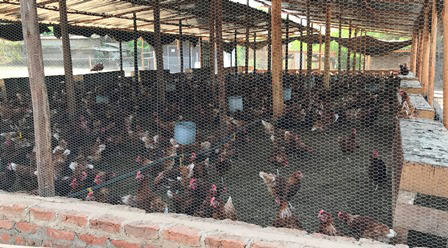
BHA also provided funds for the following
- to enable Dr. Musariri to repair the hospital’s backup electrical generator;
- to print the brochure “Important Health Information for Women” in Shona, the national language. The brochures were distributed by Karanda and St. Albert’s mission hospitals and delivered them during our 2019 visit;
- BHA board members sent funds to stock food hampers that St. Albert’s distributes to the most vulnerable.
2019 trip to St. Albert’s, Karanda, Harare and the AORTIC Cancer Conference
The 2019 trip to St. Albert’s and Karanda by Dr. Schnipper and Darrell Ward included attending the 2019 AORTIC Cancer Conference, held in Maputo, Mozambique, a country that borders Zimbabwe. It was an opportunity to gain insights into the challenges and success of treating cancer in Africa from oncologists, nurses, social workers and other cancer specialists from across the continent. During the conference, Dr. Schnipper presented the findings of the Karanda HPV study.
